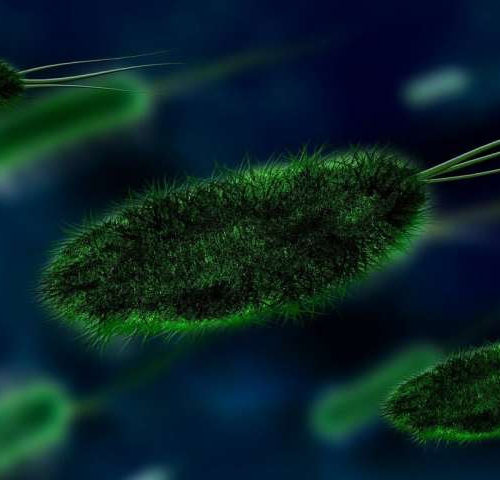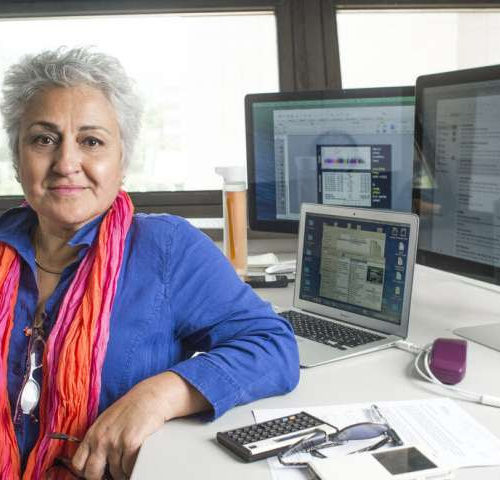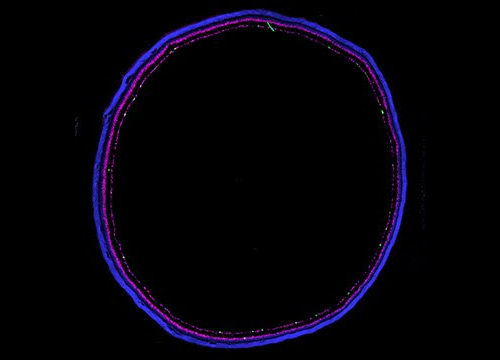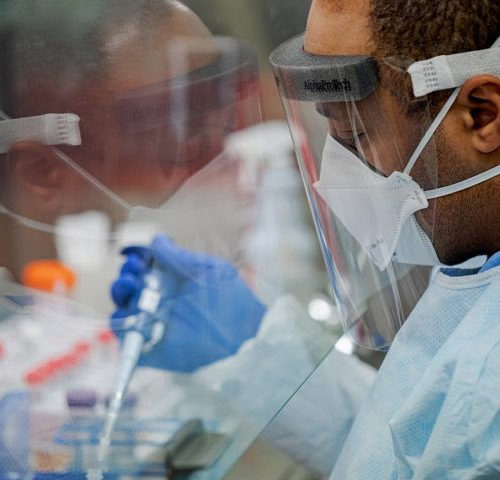ST. PETERSBURG STATE UNIVERSITY Anna Aksenova, a senior research associate at the Laboratory of Amyloid Biology at St Petersburg University, has advanced a hypothesis that the severe course of COVID-19 may be associated with von Willebrand factor. It is one of the main components of the blood coagulation system. As the researcher suggests, the replication...
Tag: <span>hypothesis</span>
Antibodies against phosphorylcholine give protection against rheumatic systemic disease
by Karolinska Institutet A novel study from the Institute of Environmental Medicine at Karolinska Institutet indicates that antibodies against a small lipid entity, phosphorylcholine (PC), can be associated with protection in inflammatory systemic diseases, including SLE and Sjögren’s syndrome. The results support evidence for a potential treatment by providing antibodies (anti-PC) to patients with these...
Squid studies illuminate neural dysfunction in ALS; suggest new route to therapy
CREDIT: DANIEL COJANU WOODS HOLE, Mass. — Amyotrophic lateral sclerosis (ALS) is one of the most devastating adult-onset neurodegenerative diseases. Patients, including the late actor/playwright Sam Shepard, become progressively weaker and eventually paralyzed as their motor neurons degenerate and die. To find a cure for ALS, which is fatal, scientists need a deeper understanding of...
The Parkinson’s disease gut has an overabundance of opportunistic pathogens
by Jeff Hansen, University of Alabama at Birmingham Parkinson’s disease is a common, progressive and debilitating neurodegenerative disease. It currently cannot be prevented or cured. In 2003, Heiko Braak proposed that non-inherited forms of PD are caused by a pathogen in the gut. He hypothesized that the pathogen could pass through the intestinal mucosal barrier...
Troublemaking ‘lesion’ singled out in UV-caused skin cancer
Finding may help explain caffeinated coffee’s link to a reduced risk of melanoma. The researchers used an enzyme from plants and marsupials to distinguish the lesion. Upon exposure to human skin, ultraviolet light from the sun almost instantly generates two types of “lesions” that damage DNA. It has long been unknown, though, whether one of...
Sex bias in pain research
It is increasingly clear that male and female humans and rodents process pain in different ways. And that there are important differences in the underlying mechanisms involved at genetic, molecular, cellular, and physiological levels. Despite this fact, according to a review paper from McGill University published in Nature Reviews Neuroscience, most pain research remains overwhelmingly...
How the Lyme disease epidemic is spreading and why ticks are so hard to stop
by Jeff Hansen, University of Alabama at Birmingham Is personalized medicine cost-effective? University of Alabama at Birmingham researcher Nita Limdi, Pharm.D., Ph.D., and colleagues across the United States have answered that question for one medical treatment. Patients experiencing a heart attack—known as a myocardial infarction or an acute coronary syndrome—have sharply diminished blood flow in...
Eyes send an unexpected signal to the brain
The eyes have a surprise. For decades, biology textbooks have stated that eyes communicate with the brain exclusively through one type of signaling pathway. But a new discovery shows that some retinal neurons take a road less traveled. New research, led by Northwestern University, has found that a subset of retinal neurons sends inhibitory signals...
Scientists have a hypothesis, why COVID-19 affects older people more
Both old and young people can get COVID-19. However, healthy young people usually get better without any treatment at all, while older patients can experience some life-threatening complications. Why older people are at higher risk of more difficult COVID-19 cases? Scientists from ETH Zurich have a good hypothesis. As you get older, your immune system...
Why are Women More Likely to have Brain Aneurysms Compared to Men?
By Dr. Liji Thomas, MD A brain aneurysm is a diseased or abnormal dilatation of the cerebral arteries at a weak spot. These typically thin-walled aneurysmal sacs of blood may continue to enlarge because of the force of the arterial pulsatile flow. A ruptured aneurysm leads to a subarachnoid hemorrhage, an SAH. Skewed Gender Representation...








